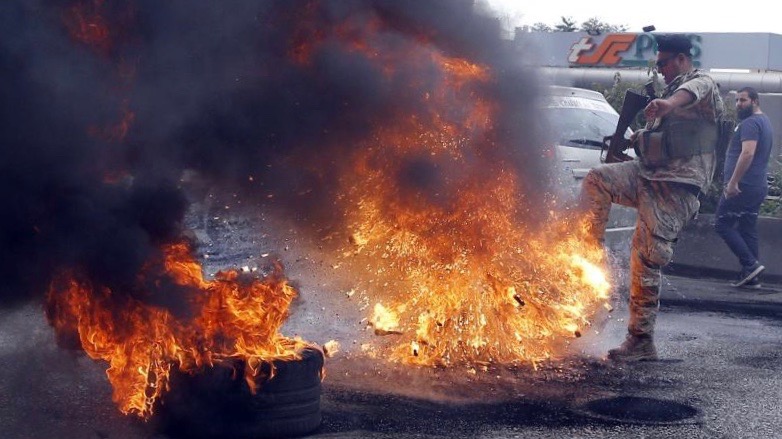Popular protests against the government and the deteriorating economy were registered in several parts of Lebanon over the last two days, despite the COVID-19 threat and the associated curfew and lockdown in place. On April 27, Monday, thousands of protesters in the northern Lebanese city of Tripoli came on to the streets in protests that the Lebanese army and police forces responded to by cracking down violently.
Protesters in several parts of the country blocked roads and important highways, burnt tyres and took action against banks. Hundreds of men, women and children were reportedly seen marching on the streets of Tripoli, chanting ‘revolution’. When the security forces tried to suppress the protests, protesters clashed with the forces, throwing stones and Molotov cocktails in response. Several bank buildings were damaged with stones pelting.
Multiple media reports stated that protests have taken place in almost every corner of the country over the last two days, including in Tripoli, Beirut, southern Sidon, Zalka (north of Beirut), Tyre, Zouk Mosbeh, Naameh, Dbaiyeh, the Jbeil and the Damour highways, Tayouneh, Dora, Jal El-Dib and others. The Lebanese Red Cross reported six people being injured in the protests in Tripoli, adding that it had taken three people to a nearby hospital while the others were treated on the protest site. Many protesters were also reportedly arrested by the security forces. The banking association in Lebanon later declared all banks in Tripoli closed starting Tuesday due to security reasons.
Lebanon is witnessing its worst economic crisis since the end of the Lebanese civil war in 1990. Massive inflation and high taxes have seen the prices of daily commodities and essential items skyrocket. The Lebanese pound has lost nearly 40% of its value in the last one year. It is currently officially valued at around 1,500 against the dollar but still being sold at an exchange rate of close to 4,000 in the black market due to low availability of the US dollar. Banks have contributed to this problem by introducing rules that restrict the amount of dollars that can be withdrawn in a month. As a result, poverty has shot up to 45% of the population, while the country also suffers from very high unemployment. Lebanon also has one of the highest debt-to GDP ratios in the world.
Popular protests against the ruling political class and business elites had begun in October 2019 but were recently halted due to the novel coronavirus outbreak. However, with the economic situation further worsening following the lockdown, and faced with criminal government neglect, lacking food, financial assistance and other basic amenities, protests have erupted again , with many fearing the prospect of dying from hunger ahead of the virus.





